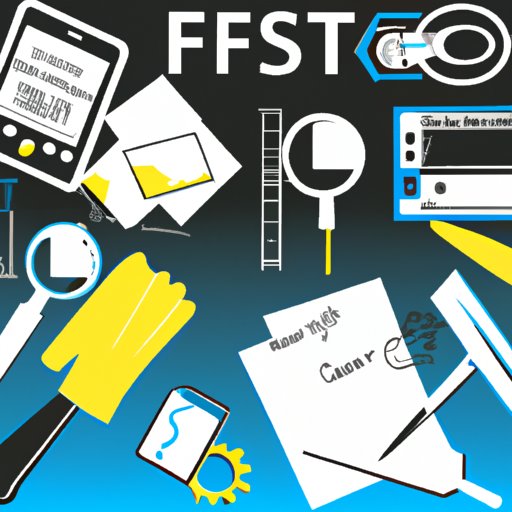Introduction
Forensic science technicians are responsible for collecting, analyzing, and interpreting evidence from crime scenes. They use specialized techniques to identify, analyze, and compare evidence that may help with criminal investigations. As a forensic science technician, you will work closely with crime scene investigators, law enforcement personnel, and other professionals to help solve crimes.
Educational Requirements
Becoming a forensic science technician requires a combination of education and hands-on experience. Most employers require at least an associate’s degree in a crime-related field such as criminal justice or forensic science. Courses like biology, chemistry, and physics are also beneficial. Depending on the employer, some may require a bachelor’s degree in a related field.
In addition to traditional classroom studies, many universities and colleges now offer online forensic science programs. These programs provide students with the same level of knowledge and skills as traditional programs but can be completed on a flexible schedule.
Types of Forensic Science Techniques
There are several different types of forensic science techniques that can be used to identify, analyze, and compare evidence. Some of the most common techniques include DNA analysis, fingerprinting, ballistics testing, and trace evidence analysis. Each technique has its own set of procedures and protocols that must be followed in order to obtain accurate results.
For example, DNA analysis involves collecting blood, saliva, or tissue samples from a crime scene and then using special machines to identify the individual’s genetic code. Fingerprinting uses various tools to capture the unique patterns found on the tips of fingers. Ballistics tests involve using firearms to fire bullets into various materials in order to compare the marks left on them. Trace evidence analysis involves collecting and examining small pieces of evidence such as hair, fabric, and fibers that may have been left behind at a crime scene.
Certification Process
In addition to completing an educational program, many employers require forensic science technicians to become certified. The American Board of Criminalistics (ABC) offers certification in several areas of forensic science including DNA analysis, fingerprinting, and trace evidence. To become certified, applicants must pass a written examination and complete a minimum number of hours of on-the-job training.
The ABC also offers continuing education courses for those who wish to maintain their certification. These courses cover topics such as new forensic technology, legal issues, and ethical considerations.
Tools and Technologies Used
Forensic science technicians use a variety of tools and technologies to collect and analyze evidence. Some of the most common tools and technologies include microscopes, digital cameras, spectrometers, and chromatography. Microscopes are used to examine small objects, digital cameras are used to take pictures of evidence, spectrometers are used to measure the energy of particles, and chromatography is used to separate and identify substances.
In addition to these tools, forensic science technicians may also use computers and software programs to analyze evidence. Computer-aided design (CAD) software is often used to create three-dimensional images of evidence. Software programs such as Autopsy, EnCase, and FTK Imager are also commonly used to recover data from digital devices.
Staying Up-to-Date
Forensic science is an ever-evolving field, so it is important for forensic science technicians to stay up-to-date on the latest advances in the field. This can be done by attending conferences and seminars, reading professional journals, and networking with other professionals. Additionally, staying informed about changes in laws and regulations can help forensic science technicians stay ahead of the curve.
In addition to staying up-to-date on advances in the field, forensic science technicians should also stay informed about ethical considerations. According to a study conducted by the National Institute of Justice, “ethics play a critical role in the practice of forensic science, as it helps ensure accuracy, fairness, and justice.” Staying informed about ethical considerations can help forensic science technicians make sure they are following the proper procedures when handling evidence.
Conclusion
Becoming a forensic science technician requires a combination of education, hands-on experience, and certification. It is important for prospective forensic science technicians to understand the various types of techniques used to collect and analyze evidence, the tools and technologies used to do so, and the importance of staying up-to-date on the latest advances in the field. With the right education and training, you can become an invaluable asset to any crime scene investigation team.
Final Thoughts
Forensic science technicians play a vital role in solving crimes. By understanding the job duties, educational requirements, certification process, tools and technologies, and staying up-to-date, you can become a successful forensic science technician.
(Note: Is this article not meeting your expectations? Do you have knowledge or insights to share? Unlock new opportunities and expand your reach by joining our authors team. Click Registration to join us and share your expertise with our readers.)
